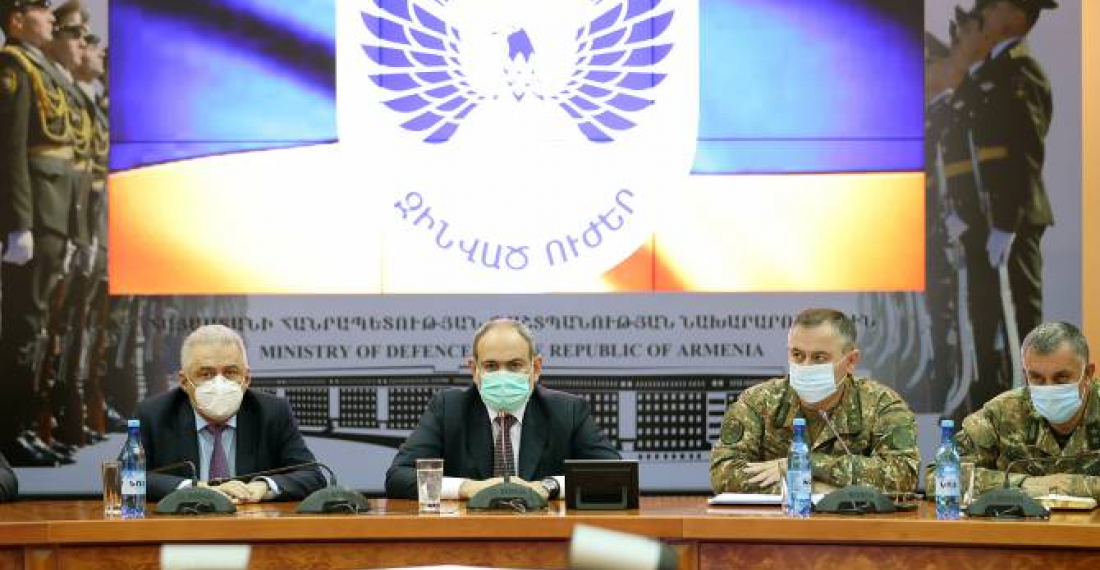After weeks of uncertainty on the issue of the leadership of the Armenian armed forces, on Monday the formal procedures for appointing a new Chief of the General Staff were completed, and prime minister Nikol Pashinyan visited the army headquarters to introduce the new head of the army to fellow senior officers. On his part the new head of the army, General Artak Davtyan, has made it clear that the army intends to keep out of politics.
The appointment brings to an end a tense situation following a statement by the army command in February calling for the prime minister and the government to resign. Pashinyan described the statement as an attempted coup and fired the head of the Army, General Onik Gasparyan.
General Artak Davtyan returns to the post that he had occupied until last year. In his remarks, Pashinyan expressed hope that Mr. Davtyan will continue his mission with the same high level as he did during his previous positions. “Of course, this mission is not easy, as we are facing very difficult times, and the problems are more than serious. Number one task is to protect the Army, the Armed Forces and number two task is to do so that necessary reforms take place in the Armed Forces which will first of all strengthen the Armed Forces, Armenia’s external security defense level and of course, the trust of all of us to our Armed Forces and our security system."
In a message on assuming command of the armed forces, General Davtyan said:
“The Armed Forces of Armenia have fulfilled and will continue fulfilling its mission to ensure the continuation of the work that was started in the direction of revaluing and strengthening the security system of our country and Artsakh after the 44-day heroic and selfless war, and in terms of eliminating external threats.
"The situation which was created after the well known statement issued by the command of the armed forces is resolved, and the existing disputes shifted to the legal arena.
"The Armed Forces of Armenia, having a constitutional status of being subordinate to the Government and under civilian supervision, will maintain neutrality in political matters, and will be guided only by the exclusive duty of ensuring the defense, security, territorial integrity and inviolability of borders of the Republic of Armenia.”
Related content on commonspace.eu: Opinion: Snap parliamentary elections are unlikely to resolve Armenia’s political gridlock






